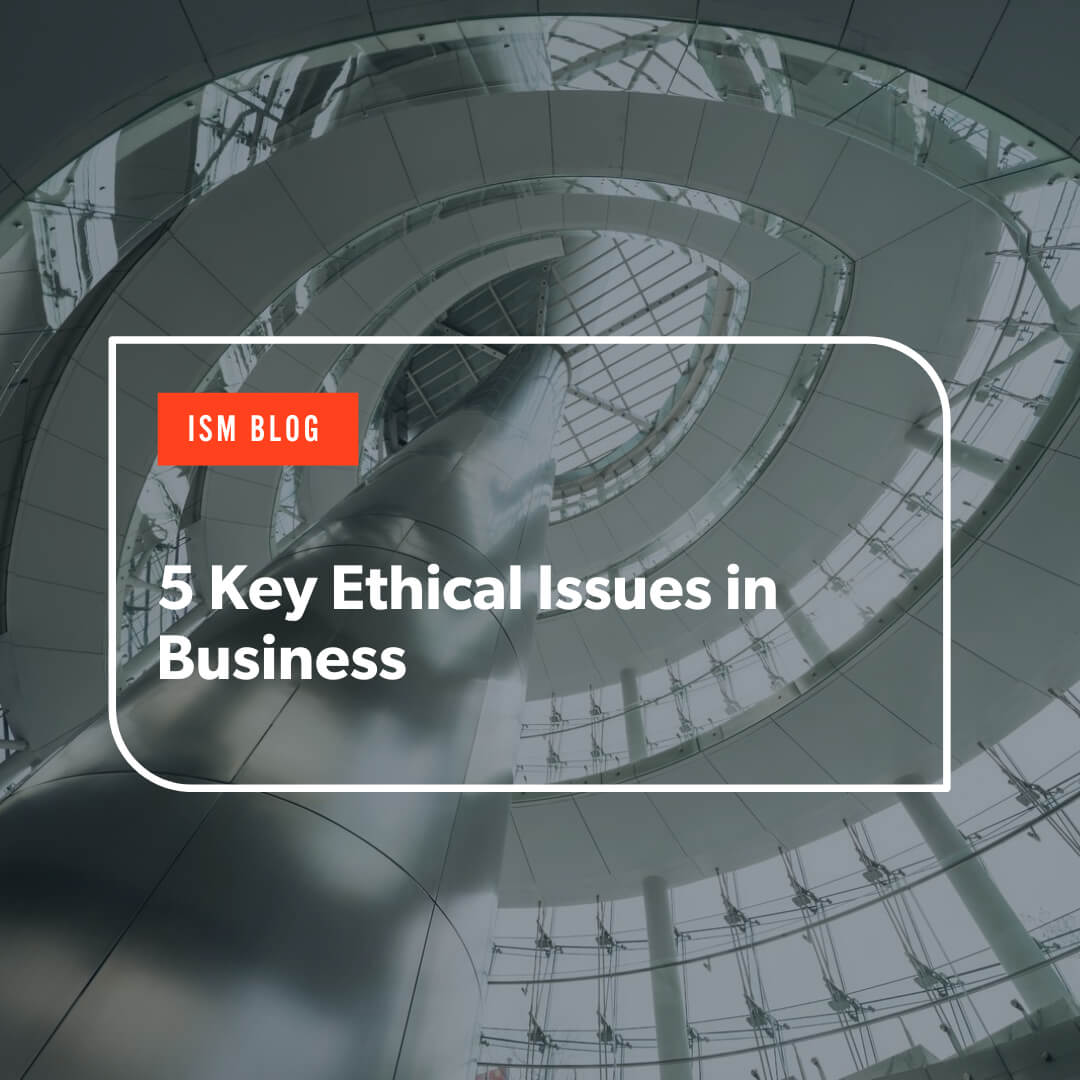5 Key Ethical Issues in Business
I recently finished a Business Ethics course at International School of Management. Here is a condensed version of one of the assignments I submitted for the course.

Ethical Decision-Making in Business: Why It Matters More Than Ever
Ethical decision-making isn’t just a “nice to have” in business – it’s essential. From ancient philosophy to today’s boardrooms, integrity, responsibility, and transparency have always been key to lasting success. Aristotle taught that virtue begins with self-examination, while Confucius emphasized righteousness and social harmony – wisdom that’s still relevant today (Byars & Stanberry, 2018, pp. 33, 37).
Cutting Corners Can Cost Lives
Boeing’s 737 MAX crisis is a textbook example of what happens when profit is prioritized over ethics. Once known for engineering excellence, Boeing shifted its focus after its 1990s merger with McDonnell Douglas from quality to profits. Leadership changes led to cost-cutting and product shortcuts, ultimately contributing to two fatal crashes that killed 346 people (George, 2024). The case underscores how short-term financial gains can result in devastating long-term consequences.
The True Cost of Offshoring
Companies like Apple and Dell have long relied on offshore manufacturing to cut costs – but often at the expense of ethical labor standards. Workers in factories like Foxconn face grueling hours and poor conditions, with little protection from weak labor laws (Maharani & Mursitama, 2023, p. 2). Environmental harm is another concern, as hazardous waste and lax regulations devastate local ecosystems (FasterCapital, n.d.). These practices raise serious questions about corporate responsibility and global equity.
Discrimination Still Runs Deep
Despite public commitments to diversity, equity, and inclusion, many workplaces continue to struggle. Legal challenges at Morgan Stanley and backlash over diversity rollbacks at Goldman Sachs reveal how difficult it is to strike the right balance (Wall Street Journal, 2025; New York Post, 2025). Even high-profile companies like IBM are backing away from DEI initiatives (Murray, 2025). Real change requires more than surface-level policies – it takes a genuine commitment to an inclusive and fair culture.
Ethics in a Crisis: COVID-19
The pandemic tested business ethics in unprecedented ways. Hospitals had to make tough calls on distributing limited resources like ventilators and vaccines – decisions that balanced fairness and efficiency (White & Lo, 2020). Meanwhile, pharmaceutical companies faced backlash over pricing critical treatments, especially when public funding played a major role in development (Lazonick & Hopkins, 2020, p. 31). These dilemmas underscore the tension between profit and public good.
When Surveillance Crosses the Line
Remote work during the pandemic also raised red flags. Many companies implemented employee monitoring tools without clear consent, leading to widespread privacy concerns (Harwell, 2020). A McKinsey report found nearly half of remote workers felt uneasy about surveillance, citing negative impacts on mental health and trust (Choudhury, Foroughi, & Larson, 2021). Ethics in the digital workplace means respecting boundaries – even in a crisis.
Final Thoughts
Ethics isn’t just about avoiding lawsuits or checking boxes. It's about building trust, protecting people, and ensuring long-term success. Businesses that prioritize integrity, transparency, and responsibility will be the ones that thrive – not just in profit, but in purpose.
References
Byars, S. M., & Stanberry, K. (2018). Business ethics. OpenStax, Rice University. https://openstax.org/books/business-ethics/pages/1-introduction
Choudhury, P., Foroughi, C., & Larson, B. Z. (2021). Work-from-anywhere: The productivity effects of geographic flexibility. McKinsey & Company. https://www.mckinsey.com/featured-insights/future-of-work/what-employees-are-saying-about-the-future-of-remote-work
FasterCapital. (n.d.). Outsourcing vs green: How to use outsourcing and green practices and reduce your environmental impact and carbon footprint. Retrieved May 13, 2025, from https://fastercapital.com/content/Outsourcing-vs-green--How-to-use-outsourcing-and-green-practices-and-reduce-your-environmental-impact-and-carbon-footprint.html
Harwell, D. (2020, April 30). Managers turn to surveillance software, always-on webcams to ensure employees are (really) working from home. The Washington Post. https://www.washingtonpost.com/technology/2020/04/30/work-from-home-surveillance/
Lazonick, W., & Hopkins, M. (2020, July 21). How “maximizing shareholder value” minimized the Strategic National Stockpile: The $5.3 trillion question for pandemic preparedness raised by the ventilator fiasco (INET Working Paper No. 127). Institute for New Economic Thinking. https://doi.org/10.36687/inetwp127
Maharani, D., & Mursitama, T. N. (2023). Implementing ethical “code of work ethics”: A case study of Apple and Foxconn supply chain. E3S Web of Conferences, 426, 02152. https://doi.org/10.1051/e3sconf/202342602152
Murray, C. (2025, April 11). IBM reportedly walks back diversity policies, citing ‘inherent tensions’—Here are all the companies rolling back DEI programs. Forbes. https://www.forbes.com/sites/conormurray/2025/04/11/ibm-reportedly-walks-back-diversity-policies-citing-inherent-tensions-here-are-all-the-companies-rolling-back-dei-programs/
New York Post. (2025). Goldman Sachs scrubs mentions of 'Black' from racial diversity web page amid DEI rollback. https://nypost.com/2025/05/02/business/goldman-sachs-scrubs-word-black-from-diversity-initiative-web-page/
Wall Street Journal. (2025). Morgan Stanley went big on DEI, and no one is happy about it. https://www.wsj.com/finance/banking/morgan-stanley-corporate-dei-what-happened-4a61427c
White, D. B., & Lo, B. (2020). A framework for rationing ventilators and critical care beds during the COVID-19 pandemic. JAMA, 323(18), 1773–1774. https://doi.org/10.1001/jama.2020.5046








